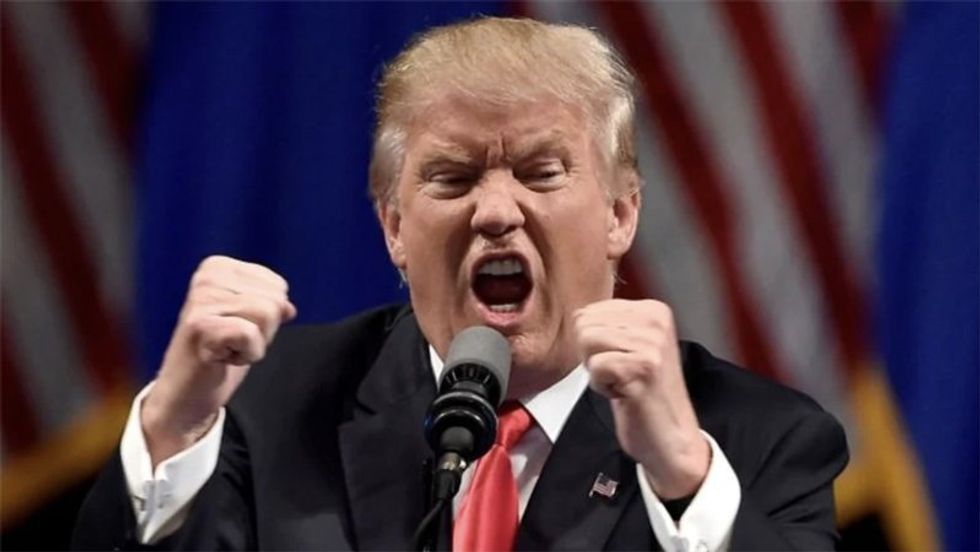

There is a 90-day pause on President Donald Trump’s “reciprocal” tariffs, but the across-the-board 10% tariff on all international goods remains until something different is renegotiated by the White House team.
The European Union trade commissioner, Maroš Šefčovič, met Commerce Secretary Howard Lutnick on Monday as part of the negotiations, but according to the Financial Times and Bloomberg News, there wasn’t much talk about the demands the U.S. is making.
“We need to hear more from the Americans. We need to have a clearer idea of what their preferred outcomes are in these negotiations,” said E.U. trade spokesman Olof Gill on Tuesday.
ALSO READ: ‘We’ve made a mistake’: Trump’s trade war sends GOP into frenzy
FT reported that Šefčovič and Gill proposed dropping all tariffs on industrial goods like steel, aluminum, and car levies. However, as Bloomberg News reported, the U.S. rejected that proposal.
“The E.U. is doing its part. Now, it is necessary for the US to define its position. As with every negotiation, this must be a two-way street . . . with both sides bringing something,” Gill continued.
When Trump announced the “reciprocal tariffs” on the E.U., he used a formula with “calculations were based on the trade surplus in goods between them and the US. The EU was given 20 per cent, based on the $235 billion goods surplus it had in 2024,” said FT.
The U.S. also had a list of demands, such as Trump’s desire for the E.U. to buy more liquefied natural gas. FT said that there is an agreement “in principle” on that. Another complaint from Trump is that the E.U. doesn’t buy enough American vehicles.
Trump has also attacked the E.U. for its standards on beef and chicken imports. The E.U. doesn’t import U.S. chicken because it has been rinsed with chlorine-based chemicals, and beef from cattle given hormones, the reports explained. The E.U. also has stricter rules about the use of antibiotics in livestock, particularly when it comes to any preventive use in otherwise healthy animals.
Gill said the meeting with Lutnick a “focused scoping” session. He added that the E.U. food safety standards were “sacrosanct.”
While there are complaints from Trump, his team hasn’t come up with a list of specific demands from the E.U.
The bloc of countries is currently the U.S.’s largest trading partner, said Bloomberg. The report also noted that Trump has attacked the E.U. for coming together as a bloc, telling his Cabinet in February it was done to “screw” the U.S. Trump thinks that the trade-in-goods surplus is proof that the relationship is unfair, the report continued.
“The EU’s trade-weighted average tariff rate was 2.7% in 2023, according to World Trade Organization data,” cited Bloomberg.
“The EU will continue to approach these talks in a constructive manner, with a view to identify areas of common interest. It is clear that significant joint efforts will be needed to achieve a successful outcome within the 90-day window,” Gill said.